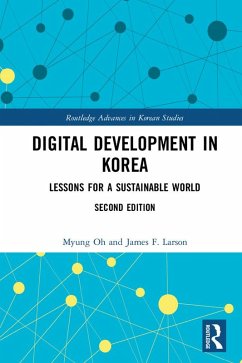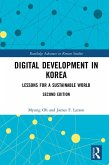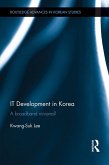Presenting a network-centric perspective to contextualize digital development politically, economically and socially, as well as in relation to globalization, urbanization and sustainability, this book builds on fi rsthand experience to explain the formulation and implementation of key policy decisions. It describes the revolutionary changes of the 1980s, including privatization and color television and the thorough restructuring that created a telecommunications sector. It then goes on to explore the roles of government leadership, international development and education in affecting the diffusion of broadband mobile communication, before weighing up the positive and negative aspects of Korea's vibrant new digital media.
Seeking to identify aspects of the Korean experience from which developing countries around the world could benefi t, this book will be of interest to students, scholars and policymakers interested in communications technologies, Korean studies and developmental studies.
Dieser Download kann aus rechtlichen Gründen nur mit Rechnungsadresse in A, B, BG, CY, CZ, D, DK, EW, E, FIN, F, GR, HR, H, IRL, I, LT, L, LR, M, NL, PL, P, R, S, SLO, SK ausgeliefert werden.









